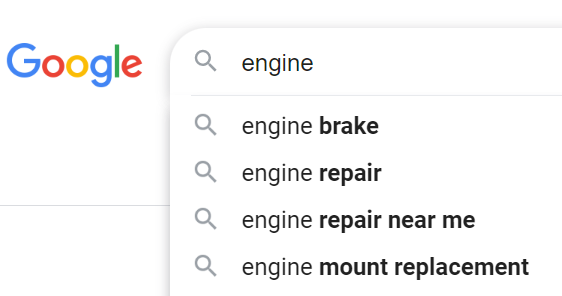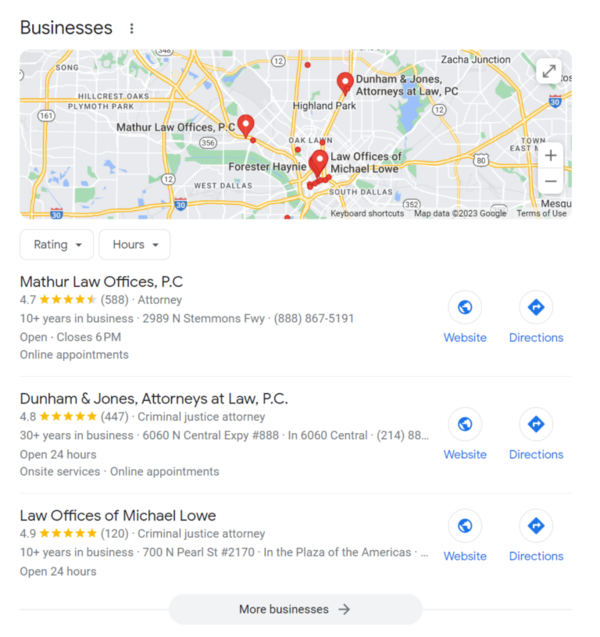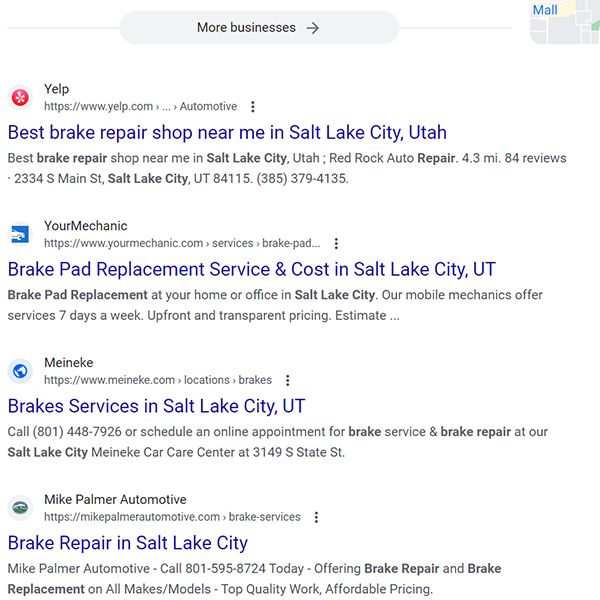
Keyword research for a local business website is often just thrown together without a whole lot of thought. However, this is a mistake. Keyword research is arguably one of the most important foundation steps in profitable Local SEO.
To do highly effective Local SEO keyword research, you need to identify what words searchers type into the search engines when they are looking for a company that provides your products or services. It does not do any good to show up in the Google Maps 3 pack for things nobody ever searches!
In this article, I will walk you through the simple, practical steps of finding each of the most highly searched and profitable keywords that a business in your industry needs to rank in Google Maps 3 pack.
Before I get into the meat of this article, I just want to make a quick suggestion. If you came to this article because you are trying to learn Local SEO, I recommend that you read these two articles: “How To Do Local SEO – An In-Depth Overview!” or “What Is On-Page Local SEO?“
List Of All The Products Or Services You Offer

This step is basic brainstorming. What you want to do here is simply write down a list of all the products and/or services your business offers.
For this list, you want to be as comprehensive as possible. We are brainstorming. If it is something you sell, list it.
For example, services that an auto repair business might provide could be:
- Oil Changes
- Cooling System Flush
- Brake Repair
- Engine Repair
- Etc.
A dentist might provide services such as:
- Teeth Cleanings
- X-Rays
- Teeth Whitening
- Fillings
- Crowns
- Etc.
Our goal is to show up in the search engines for all the services you provide.
Use Competitor Websites and tools To Search for More Ideas

For this next step, you want to go through all of your top competitor’s websites. Ensure you focus on the ones most often in the Google Maps 3 Pack. And search through all of the services they list that they provide.
If you provide that product or service, too, and you haven’t yet put it on your list, then add that service to your list.
Another helpful way to help complete your list is to use the keyword ideas sections of tools like Ahrefs and Semrush. These tools often give you many variations of ways to state the products or services you already have on your list. That is not what we are looking for.
Look for additional products or services that you do offer that you hadn’t thought of. That is how these tools will be helpful in this effort.
Compare Your List Against The Actual Words Searched

For this step, we are trying to find out how most people enter our products or services on our list into Google when searching for a company that provides those services.
If you look at the above image, you will see what I am wanting you to do. Start typing in each of the services on your list, and Google will suggest things that people actually search. If you find a suggestion by Google for something you have on your list that is worded differently than you have it, change your wording to how Google shows it. We want to target the terms for our products or services that people actually type into Google most often.
Check Your List For Local Intent

Okay, now that we know our list is all things Google says people actually search for, we want to make sure everything on our list has Local Intent.
By Local Intent, I mean that people searching these terms are looking for a local business when they do the search.
You can tell this when you enter the search term in Google to do the search and either a Google Maps 3 pack or a list of local businesses. If no local businesses or local business directories show up in the search, or very few, then you know the Local Intent is not good.
You want to only include on your list search terms for your products or services that have Local Intent.
Should You Check For Search Volumes?
If you are in a reasonably large town with a fairly common business type, you should get a Google Maps 3 pack for most searches. If not, then it means the search volume is very low. You can decide at that point if that keyword is worth targeting.
Various companies’ search tools claim to show keyword search volume. Google even has one called keyword planner. The problem is all of these are extremely inaccurate; don’t waste your time with them. I have seen keywords that showed zero search volume in the keyword planner bring in lots of traffic and be very profitable.
My rule of thumb is if it is a profitable product or service with reasonable demand for it, include it on your list. And when in doubt, I focus on the keywords that have enough search volume to produce a Maps 3 pack.
Group Your Search Phrases Into Related Groups

When farmers put grain into grain silos, do they mix the types of grain in the same silo? Absolutely not. Each silo has its own type of grain in it.
We want to do that now with the search keyword list you have put together.
For example, an auto repair company might offer several services relating to the car’s brakes, such as this list:
- Brake Pads Replacement
- Brake Rotors/Drums Resurfaced
- Brake Fluid Flush & Replacement
All of these would fall under the general search term of Brake Repair.
So what your goal is now is to group your search terms into related groups or silos. For each general product or service search term (such as Brake Repair), you want to come up with 3 to 5 related supporting search terms (such as Brake Pads Replacement, Brake Rotors/Drums Resurfaced, and Brake Fluid Flush & Replacement).
Then, the same thing for each general search term. To continue with our auto repair example, other general search terms might be Engine Repair, Transmission Repair, and Radiator Repair. Each of those general terms is the head of our silos. We would try to find 3 to 5 related supporting search terms just as we did for Brake Repair.
Determine Which Keywords Need A Whole Page

Now that you have grouped all your keywords into related silos, it is time to determine which keywords need their own page to rank well.
What I do is search for each of the general and supporting search terms in the city where the business is located. Then, I go down to the general organic results below the Google Maps 3 pack (see the above image) and examine the results.
You can tell from the titles of the results if the page is all about the search term or a more general page listing multiple services.
For example, in the above image, I searched for “brake pad replacement salt Lake City.” Only one of the results in that image has brake pad replacement in the title of the page; the rest say brake repair or brake services.
If the top 3 or 4 results had brake pad replacement in the page title, you would want to write a whole page on that search term. If not, then you should be able to rank for this search term by having a subsection on the brake repair page about that search term.
Silo Scenarios
1st Scenario
All siloing means is you group your related search terms together to focus on them in your content. It can be as simple as an “Our Services” page with H2 titles, including the general search terms, and H3 titles under each H2 title, including the supporting search terms.
If all of your competitors have a list of services on their home page or services page, you should be able to outrank them with that kind of simple silo.
2nd Scenario
If your competitors all have similar silos, I would do a page for every general search term with the search term in the title and an H2 title with each supporting keyword in it.
In this scenario, you would want to work all of your general search terms into the titles or text on the home page or location pages and turn them into contextual links that each link to the page for that general search term.
3rd Scenario
The final scenario is that if all your competitors have pages for each of their general search terms, you will want to create individual subpages (or these could be posts) for each of your supporting search terms.
You will want to contextually link from the general search term pages to at least one of their supporting pages and back to the home or location page. Each of the supporting pages should contextually link to each other and back to the general search term page.
